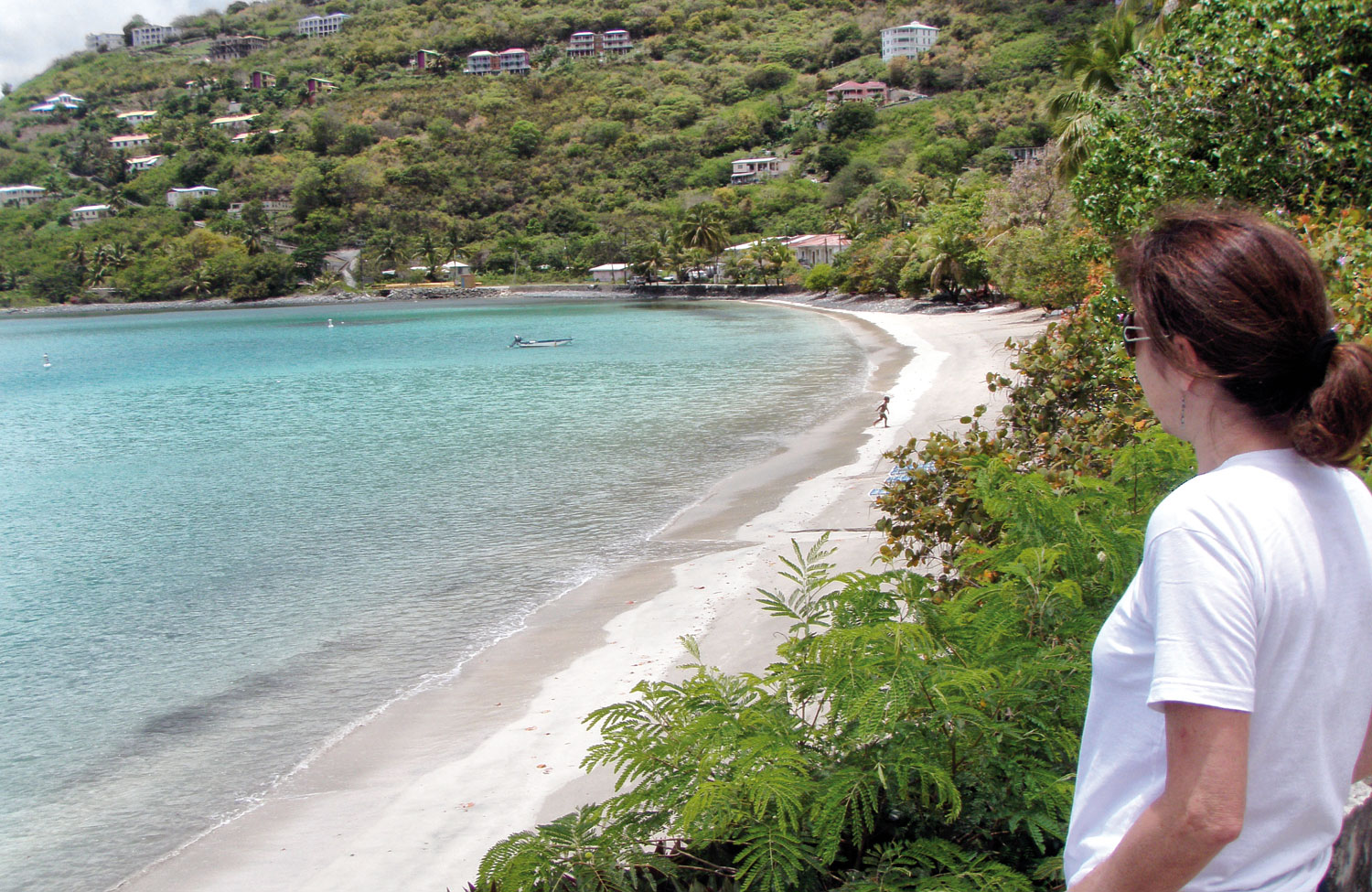

Sun loungers dot the white sand of Cane Garden Bay, a beach resort tucked between steep hillsides and the azure sea in the British Virgin Islands. Yachts bob in the harbour and brightly painted homes line quiet streets.
But behind this tranquil scene, locals are on edge after the destruction wrought by Hurricane Irma last September.
Amid fears more wild weather could decimate their incomes - which depend on tourists enjoying the bay’s stunning beauty - the close-knit community is acting to keep its head above water.
Wetlands, mangroves, ponds and coral reefs are being restored to protect the village from future floods and storms.
Local celebrity Quito Rymer, a reggae singer-songwriter, is among those whose property was gutted by Hurricane Irma.
Packing winds of 185 miles per hour (300 kph), the storm whipped up waves 30-feet (9 m) high that crashed against buildings, and sent roofs flying through the air.
Rymer, sporting dreadlocks and his trademark orange cap, used to play two or three times a week to a loyal audience at his oceanfront restaurant-bar. The hurricane stopped that.
Now he is rebuilding “Quito’s Gazebo” from scratch for the winter tourist season.
Cane Garden Bay has been transformed in recent decades from a rustic hamlet into a must-see tourist destination, Rymer said.
That has been a boon for the local economy. But the process of rapid development has scarred wetlands, ponds and other natural features that once kept low-lying areas from flooding.
“It was a little bit of short-sightedness on our part,” said Rymer. “You have to have a balance, or you lose what you love.”
Since February, the 66-year-old has mobilised green-minded residents - many still rebuilding their homes and businesses - to work as volunteers restoring the damaged ecosystem.
“We know for a fact the government cannot do everything,” said Rymer. “We have decided to take things in our hands.”
STINKY WATER
For the village of about 500 people, it is a tough task.
In the past, ponds captured stormwater coursing down the hillsides, said Shannon Gore, a U.S.-born environmental consultant and Cane Garden Bay resident.
But when houses started sprouting in the 1960s and 70s on the Manhattan-sized island of Tortola, where Cane Garden Bay is located, excavated soil was dumped in coastal wetlands and ponds.
“Ponds were considered useless stinky swamp water,” said Gore. But now, with nowhere to go, heavy rains flood properties.
Water running into the sea without natural filtration carries sediments that can kill the bay’s colourful coral reefs by blocking sunlight or infecting them with diseases and fungi.
Half of the reefs have disappeared around most of the British Virgin Islands (BVI) over the last 25 years, according to the University of Rhode Island.
Cane Garden Bay’s beaches - whose white sands depend on healthy coral reefs - have lost some 24 feet in width since 1953, Gore’s research found.
Reefs are a natural buffer against powerful waves, and when they shrink, the coast floods more easily, said Clive Petrovic, marine studies head at the H. Lavity Stoutt Community College outside Road Town.
Sea level rise linked to climate change will make the situation “that much worse”, he added.
Just a month before Irma, Cane Garden Bay was already dealing with disastrous flooding after 10 inches (25 cm) of rain fell in less than 17 hours - the third major flood this decade.
COMMUNITY CLEAN-UP
As a child, Lorenzo Hodge used to fish in one of the village ponds, alive with mangroves and birds.
These days, the 46-year-old pumps gas into ships at the business his father built, next to a dirt pile 25-feet tall now covering most of the pond.
It is a reminder of development gone awry.
“Back then I didn’t really pay attention to things like that. Now the problems it is creating make me wonder,” he said.
On a Saturday in June, Hodge joined the bay’s restoration committee, jumping into a clogged stormwater channel.
Slicing uprooted trees with a chainsaw, they gathered wood, coconuts and other debris blocking the waterway since Irma.
Organiser John Cline, a 55-year-old pastor, said tourists visit the British overseas territory to sail in clear waters and relax on pristine beaches.
“If that goes, why do they come?” he asked. “It’s important for us not only to restore it, but to keep it from getting any worse.”
The committee is also replanting vegetation and cleaning the ocean floor, with plans to replant mangroves damaged by Irma. — Thomson Reuters Foundation
Oman Observer is now on the WhatsApp channel. Click here



